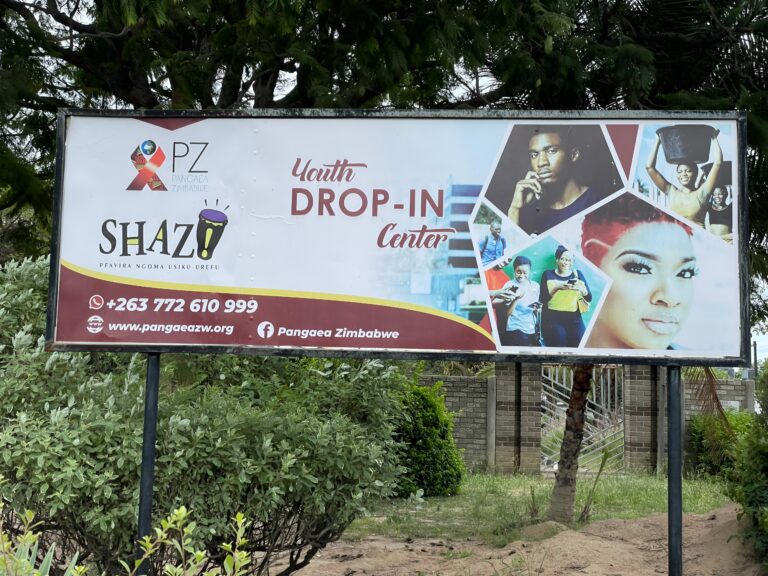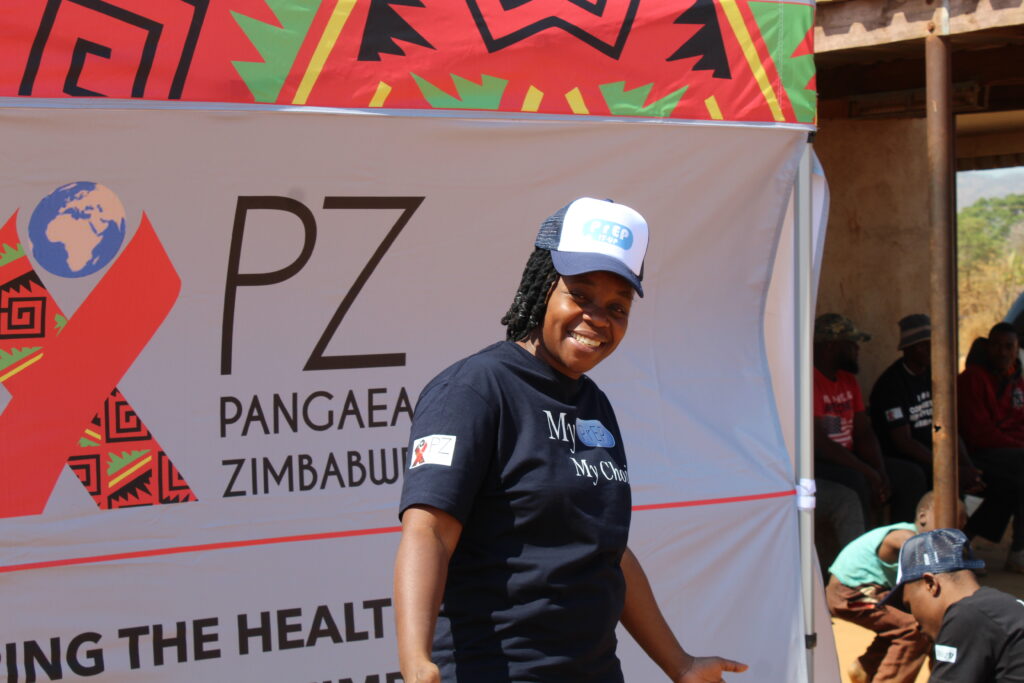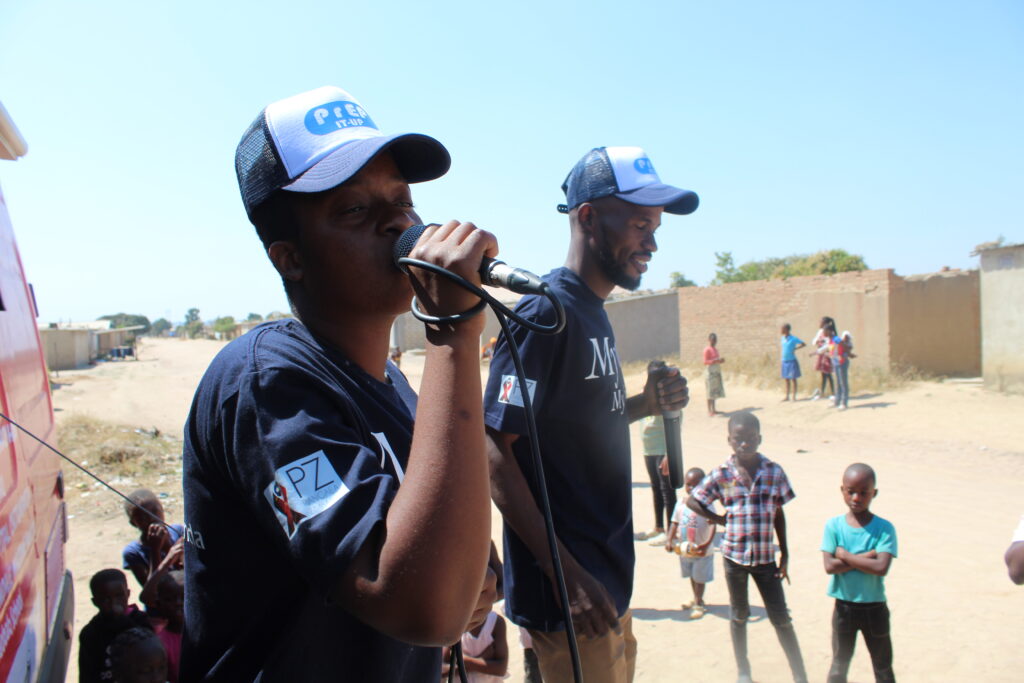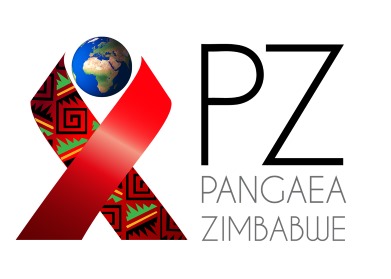
PROJECT OVERVIEW
Having access to comprehensive sexual and reproductive health services is imperative to a person’s health. Pangaea Zimbabwe provides SRH services to adolescents and young adults through the SHAZ! HUB. SHAZ!, which stands for “Shaping Adolescent Health in Zimbabwe is a youth drop-in centre and comprehensive sexual health clinic for adolescents and young adults aged 16-24 years located at CitiMed hospital (Ward B) in Chitungwiza. The HUB has been operating since 2003, first as an NIH research clinic, and now as a “safe space” for all young people in the greater Chitungwiza area to relax and have fun, to study and gain life skills, and to access health services in a welcoming and discreet environment. The HUB offers the following services:
Free comprehensive sexual health and HIV services: We have qualified Nurse Counsellors at the centre who provide HIV testing, STI screening and treatment, pregnancy testing, provision of short to medium contraception, treatment of minor ailments and counselling and support sessions. Pangaea Zimbabwe links with Population Services Zimbabwe in the community for the provision of long-acting family planning methods provided through contraceptive implants. The HUB also offer oral PrEP to adolescents and young people who are negative but at high risk for HIV infection. This includes young key populations (young Men who have sex with men (MSM), young girls selling sex, young female sex workers and transgender youth around Chitungwiza and we collaborate with Population Services International (PSI). The SHAZ! Hub also offers access to voluntary medical male circumcision, and it is linked with the OI/ART clinics at CitiMed and the Chitungwiza Hospital so that young clients living with HIV can access HIV care and treatment while receiving adherence and social support from counsellors and peer supporters at the HUB in collaboration with AFRICAID. The SHAZ! Hub services have also be extended to Mazowe.

Over and above, we have two projects hosted at the SHAZ! Hub. These are the CHIP project and MOSAIC’S CATALYST Study.
CHIP Project
The Combination HIV Prevention (CHIP) Project is being implemented in two areas namely Chitungwiza and Mazowe. Chitungwiza is a peri urban town situated in the Seke district in the Mashonaland Province. Mazowe is a highly HIV burdened farming/mining district located in Mashonaland Central Province.
Main Objectives
- To improve access to comprehensive youth-friendly HIV prevention and SRH services to AGYW and ABYM
- To build the capacity of healthcare workers in Seke and Mazowe districts to provide comprehensive and quality youth-friendly HIV/SRH and KP-friendly services
- To enhance knowledge on HIV prevention, care and treatment, and SRHR services among AGYW and ABYM
- To raise awareness, improve availability, and increase uptake and continuation of various HIV prevention methods for AGYW and ABYM
- To improve the livelihoods of AGYW and ABYM through economic empowerment
Scope of work
In Chitungwiza there is an already existing hub/safe space and the one in Mazowe is scaling up services drawing lessons from the Chitungwiza hub. The priority population is adolescent girls and young women (AGYW) (16-24) in their diversity that is including sex workers, lesbians, queer and transgender women. The secondary priority population is adolescent boys and young men (ABYM) (16-24). The intervention uses three themes (biomedical, behavioral, and structural) to provide combination HIV prevention. The biomedical intervention, offers HIV testing through differentiated service delivery models, including distribution of HIV self-test kits. The behavioral component delivers a behavior change curriculum to address knowledge gaps and an economic empowerment curriculum. The structural theme advocates for policy changes such as provision of integrated HIV/SRHR services and removal of age restrictions in accessing these services.
Target population
AGYW, ABYM in their diversity (16-24)
Geographical areas
Seke and Mazowe districts
Implementation period
2023-2025 – 3-year project


Results
Given that in Zimbabwe, men who have sex with men are often unable to access health services because of fear of stigma and discrimination. To hear positive stories from the MSM who appreciate services at the Hubs is a milestone. “When my friend who works at the Hub as a CHIP champion encouraged me to go and get treated after I had developed anal warts, I was hesitant as I was afraid that the nurses would shout at me. However, he escorted me and when we got to the Hub, I was greeted by friendly staff. When I went to the nurse consultation room, I was not comfortable sharing information but after she assured me that she would not judge me and that she wanted to help me, I felt at ease, and I shared my story.
She performed a physical exam and explained in detail what genital warts were and the course of treatment she would administer. She also assured me that if I faced any challenges, I should beep her, and she would call me. I felt like a king because of the treatment I got and am now referring my friends for PrEP services” Young MSM, 17 years, Chitungwiza. “The nurses at the Hub are old but young at heart. The first time I saw them my heart skipped as one of them was old enough to be my mother. After interacting with her, I became comfortable telling her my secrets. I now regularly go to the Hub to interact with other young people my age although I don’t disclose to them that I am an MSM. The staff have never treated me differently from the other young people who will be accessing services” MSM, 24 years, Hatfield. Having a place that accepts you as an MSM and does not judge you has been the best thing they have done at the Hub. I have been initiated on PrEP and come to collect my refills for the past 4 months and I have never been treated unfairly. The nurses call me regularly to check on my well-being and I feel supported in my PrEP journey.” MSM, 21 years, Chitungwiza.
CATALYST STUDY
To learn more about the CATALYST Study, click here.
